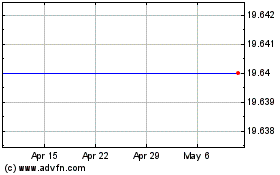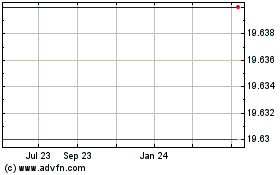Third Point, Regulators Settle Over Antitrust Filings for 2011 Yahoo Stake -- 2nd Update
August 24 2015 - 4:45PM
Dow Jones News
By David Benoit
Activist investors on Monday got a reminder that their
investments are subject to antitrust review, a warning that will
shine a spotlight on a debate over why that is.
The Federal Trade Commission and Justice Department on Monday
announced a settlement with Third Point LLC over allegations the
New York hedge fund failed to properly file for antitrust clearance
when it built its position in Yahoo Inc. in late 2011.
The government had alleged that Third Point's interactions with
Yahoo crossed a threshold requiring investors to notify regulators
if they have taken an activist position.
Third Point, founded by outspoken activist Daniel Loeb, won't
pay a fine, though it could have faced millions of dollars in
penalties under the rules. The fund entered into a five-year
agreement with the FTC and Justice Department to make all
appropriate filings.
Activists and some antitrust lawyers have argued that the rule
requiring such filings lacks clarity and should be abolished, but
the debate hasn't garnered as much attention as a similar
discussion regarding securities laws that require investors to
disclose when they own more than 5% of a stock.
The FTC's allegations against Third Point, one of the most
high-profile activist funds, could change that.
The Hart-Scott-Rodino Act, or HSR, requires acquirers of stock
worth more than $76.3 million to alert regulators. The rule is
meant to allow the government to get ahead of any deals that may
potentially violate antitrust regulations.
Purchases of less than 10% of a company's shares that are made
"solely for the purpose of investment" are exempt from the filing
requirement. But investors can only rely on that exemption if they
are passive, or have "no intention of participating in the
formulation, determination or direction of the basic business
decisions."
What that means has been a question for activists and antitrust
lawyers for years. Most activists end up filing the
notification.
"There are few concrete guide posts for the exemption," lawyers
from Fried, Frank, Harris, Shriver & Jacobson LLP wrote in a
February memo to clients.
The Third Point judgment does little to shed more light on the
subject. It says Third Point must file before talking with a
company about taking board seats or to third parties about being
director nominees.
Third Point filed for HSR clearance in September 2011.
Ultimately, the fund helped remove Yahoo's chief executive and
install Marissa Mayer as CEO. Mr. Loeb became a Yahoo board
member.
The FTC argued that Third Point should have filed earlier than
it did because it indicated to Yahoo it would consider seeking
board seats and had talked to others about being CEO or directors
of the company.
Third Point argued to the FTC that it wasn't necessary to file
until it had made a decision to actually seek those board seats,
people familiar with the matter said.
The agency, however, stuck to a more narrow interpretation of
the exemption.
"The investment-only exemption is a narrow exemption limited to
those situations in which the investor has no intention to
influence the management of the target firm," FTC Competition
Director Deborah Feinstein said in a statement. "Here, Third
Point's conduct demonstrated that it intended to have more than a
passive interest in Yahoo, which obligated its affiliated funds to
make an HSR filing and wait before acquiring its shares."
Activists and some antitrust lawyers have argued that the filing
requirement is too costly. The cost of filing the HSR notification
can range from as little as $45,000 to as much as $280,000,
depending on how much stock an investor owns.
Third Point went as far as to argue the FTC's interpretation was
unconstitutional, saying it essentially forces investors to pay the
government in order to speak, the people said.
Activists also argue that the filings force them to disclose
their positions to companies too early, a key concern for
investors. While activists have to file with the Securities and
Exchange Commission when they cross 5% of a company's stock, those
stakes often far exceed the value of HSR levels.
A separate debate has raged in recent years on whether the
activists should be forced to make that SEC disclosure sooner.
Some have called for the FTC to move away from the passive and
active distinction in favor of a flat exemption for any investor
who isn't a competitor and is under 10% or 15%. The agency explored
such a change in 1988.
Two FTC commissioners dissented from the decision to file a
complaint against Third Point and issued a separate comment saying
the rules should be updated. They suggested a flat exemption for
those under 10% as one possible solution.
Third Point's agreement ends in five years unless a flat
exemption becomes law before then.
Brent Kendall contributed to this article
Subscribe to WSJ: http://online.wsj.com?mod=djnwires
(END) Dow Jones Newswires
August 24, 2015 16:30 ET (20:30 GMT)
Copyright (c) 2015 Dow Jones & Company, Inc.
Altaba (NASDAQ:AABA)
Historical Stock Chart
From Mar 2024 to Apr 2024

Altaba (NASDAQ:AABA)
Historical Stock Chart
From Apr 2023 to Apr 2024
